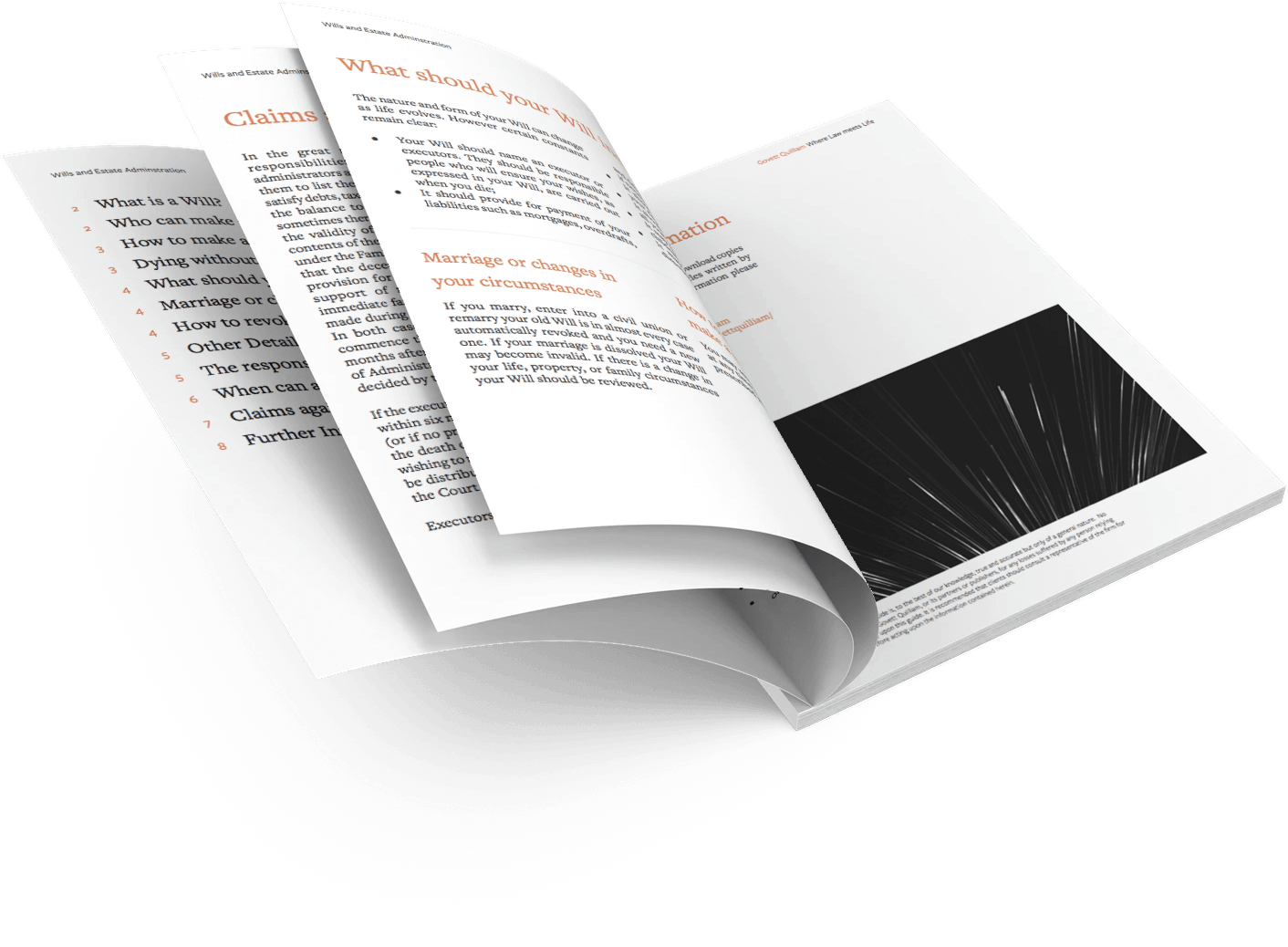Related Posts

High Court Decision Strengthens Caselaw Upholding Tikanga As Unique Source Of Law

What Are My Responsibilities As A Trustee Of A Māori Land Trust?

Tax Treatment Of Māori Authorities

Law changes for rates and Māori land

Peter Ellis appeal: treatment of tikanga Māori within our legal system

It has almost been a year since the Act came into force and it is a good time to summarise some of the important provisions and also consider a few implications that have been observed over the last 12 months.
The introduction of the Trusts Act 2019 (‘the Act’) was significant being the first major reform to the law of trusts for almost 70 years. While one of the main aims of the Act was to consolidate and codify the large amount of case law in this area, new concepts and aspects were also introduced.
Mandatory & Default Duties
Even before the Act, there has always been duties which Trustees had to satisfy. The Act codified these duties and split them into two categories. There are ‘mandatory duties', being duties that Trustees must abide by and which cannot be modified or changed. There are now also ‘default duties’ which are duties that apply unless the terms of the Trust modify, alter or exclude them.
The mandatory duties are:
- know the terms of the Trust
- act in accordance with the terms of the Trust
- act honestly and in good faith
- act for benefit of the beneficiaries or to further the permitted purpose of the Trust
- exercise the powers for a proper purpose.
The default duties include:
- to invest prudently
- not to exercise power for own benefit
- to avoid a conflict of interest
- to act for no reward
- to act impartially in relation to the beneficiaries.
In response to the legislative change, people have been reviewing the terms of their Trust to ensure that provisions are still fit for purpose in light of the Act. In particular, consideration has often been given to whether the default duties should apply and if not, whether the terms of the Trust adequately modify or exclude the relevant duties.
One common example of a default duty that is often excluded or modified is that a Trustee should not exercise a power for their own benefit. A large amount of family trusts have Trustees who are also beneficiaries. In these circumstances, the terms of the Trust need to modify or exclude this default duty. This can be done by express or implied terms of the Trust.
If a review of the terms of the Trust finds that the terms do not adequately modify or exclude a default duty then the terms may need to be varied. Unfortunately, it is not always easy to vary the terms of a Trust. It depends on whether the terms include a power to vary the terms and how wide this power is. While it is not impossible to vary the terms of the Trust if there is no specific power to vary, the alternatives are cumbersome and could involve court applications.
If you have not reviewed the terms of your Trust in light of the Act then it is recommended that such a review is undertaken.
Retention Of Documents
Trustees must each hold a copy of the terms of the Trust and any variations that are made.
If the Trust has more than one Trustee then the Act provides that it is satisfactory if at least one of the Trustees holds any other documents in relation to the Trust (such as records of the Trust’s property, financial statements, records of decisions, documents in respect to the appointment and retirement of Trustees).
It has been surprising to find just how many Trustees do not hold a copy of the terms of the Trust. If you are a Trustee and do not have a copy of the terms of your Trust then you should take steps to remedy this. An electronic copy is fine for these purposes as long as you can access it easily.
Disclosure Of Information
The Act introduced the concept of ‘Basic Trust Information’ and this is simply:
- the fact that a person is a beneficiary of a Trust
- the name and contact details of the Trustees (and to be informed if the Trustees change)
- the right to request a copy of the terms of the Trust or other Trust information.
The presumption provided for in the Act is that all beneficiaries should have Basic Trust Information disclosed to them unless the Trustees decide the presumption does not apply after consideration is given to certain factors which are set out in the Act.
There is quite a long list of factors in the Act (which are not exhaustive) and these include the nature of the interests in the Trust held by the beneficiaries including the likelihood of that beneficiary receiving a benefit, the age and circumstances of the beneficiary and the effect on the beneficiary of giving the information and the effect of giving the information on relationships within the family.
After carefully considering the factors set out in the Act, Trustees may decide not to disclose Basic Trust Information to one or more of the beneficiaries. They do not have to reveal their reasons for non-disclosure but they need to be able to produce evidence of these reasons if the decision is ever challenged and the matter goes before the Court.
If there is not at least one beneficiary aware of the Basic Trust Information then approval from the Court is required.
The other part to the disclosure process provided for in the Act is when a beneficiary makes a request for information. Again the presumption in the Act is that such information should be disclosed unless the Trustees decide against this after considering those factors set out in the Act as noted above. Reasons for decisions do not have to be disclosed.
The disclosure requirements continue to be a source of contention for some Trustees. Such contention mainly arises because of the tension between the need for accountability versus the frequent wish to maintain some discretion about information (mostly financial information) from younger generations because of concerns they will become demanding or dependent on what they might receive in the future.
A good way to address some of these concerns is the way the information is communicated. There is no prescribed form which Trustees must use when disclosing Basic Trust Information. It might be that an informal discussion is first held between the parties and it is followed up by a simple email. Sometimes a more formal letter is appropriate.
If the Trustees do consider the relevant factors and decide that disclosure is not appropriate then it is prudent to record the reasons. These may have to be produced if beneficiaries challenge the Trustees decision through the Court.
The Duration Of A Trust
Another change the Act introduced is the maximum duration a Trust can exist. Prior to the Act, there was a ‘perpetuities rule’ which generally meant that a Trust could not exist longer than 80 years.
The Act abolished this rule and provides that a Trust can now exist for up to 125 years. This was in recognition of the fact that people are living longer so need the vehicles which hold their assets (eg Trusts) to last longer as well.
Depending on the terms of the Trust, it is possible in some cases to extend the duration of existing Trusts. However, in our experience over the last 12 months, we have found that most people are of the view that 80 years is long enough and do not wish to extend the duration in any event.
General Reflections
We will continue to watch with interest the developments in respect to the Act as case law starts to form.
Overall, it would be fair to say there has been an increase in the costs of compliance and enhanced responsibility for Trustees. It would seem that this has caused many people to question the value in retaining their Trust.
Many conversations have been prompted by the Act and this is for the most part very positive. There are many Trusts which were created for a certain purpose and that purpose may no longer be valid or exist and so it makes sense for people to take stock and review whether it is still worth retaining the Trust and the implications of winding the Trust up (if that is an option).
However, Trusts still pay an important and valuable part in ownership structure and estate planning. In certain circumstances a Trust is the most appropriate option and people are still establishing Trusts for this reason.
It will be interesting to see how this area of law develops in 2022. In our view, it is more important than ever to ensure that your Trust is administered and managed properly in accordance with the Act.
Please note this article contains general information and commentary only. Our Personal Planning Team (Trusts, Wills & Estates) are happy to discuss the Trusts Act 2019 with you further and provide specific legal advice, so please contact us.

.png)

